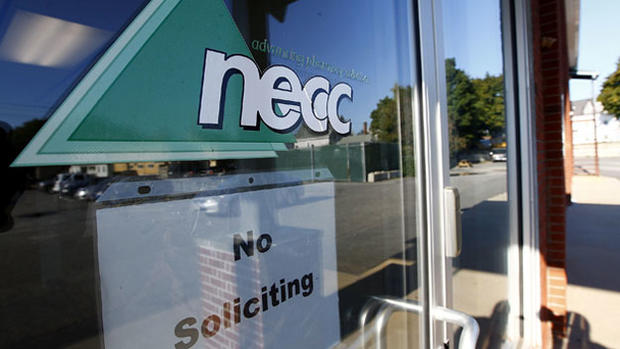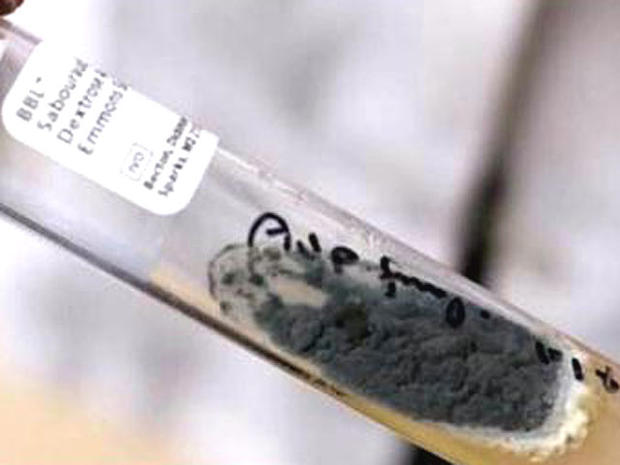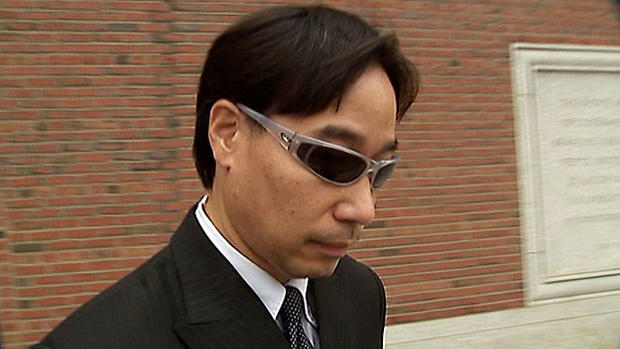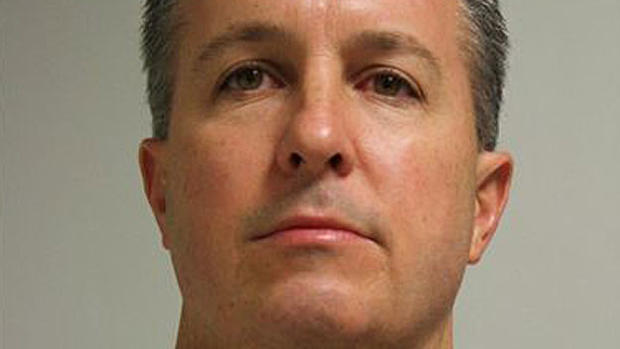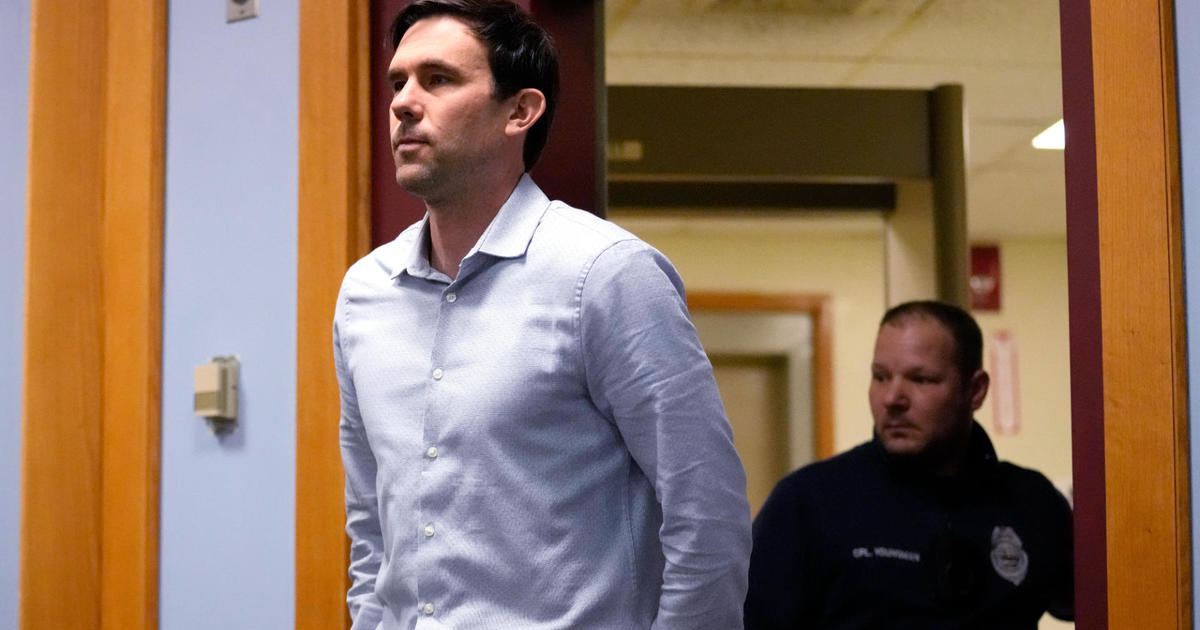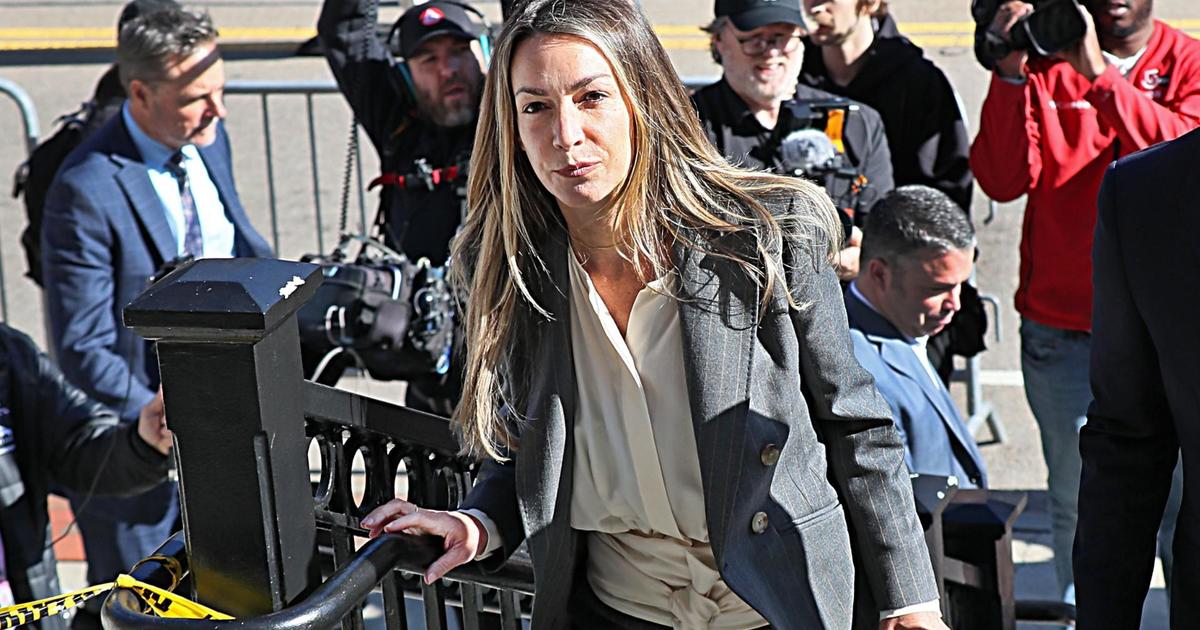NECC Co-Founder Not Guilty Of Murder, Convicted Of Racketeering In Meningitis Outbreak
BOSTON (AP/CBS) — The former head of a Massachusetts pharmacy was convicted Wednesday of racketeering and other charges over a meningitis outbreak that killed 64 people across the country and was traced to fungus-contaminated drugs.
Prosecutors said Barry Cadden, 50, ran the business in an "extraordinarily dangerous" way by skirting regulations on cleanliness to boost production and make more money.
Cadden, president and co-founder of the now-closed New England Compounding Center, was charged with 25 counts of second-degree murder, conspiracy and other offenses under federal racketeering law.
After five days of deliberations, the jury found Cadden wasn't responsible for the deaths and acquitted him on the murder counts. He was found guilty of racketeering, conspiracy and fraud. Sentencing was scheduled for June 21.
The 2012 outbreak of meningitis and other infections in 20 states was traced by the Centers for Disease Control and Prevention to contaminated injections of medical steroids, given mostly to people with back pain. In addition to those killed, 700 people fell ill. Indiana, Michigan and Tennessee were hit hardest.
Robert Jenner is a Boston attorney with the firm Janet, Jenner & Suggs who represented about 100 clients in civil litigation. He said victims and their families are disappointed by Wednesday's verdict.
"His conduct resulted in the death of dozens and left families devastated," Jenner told WBZ. "We hope the judge does the right thing at sentencing."
"I wish I could give him the same shot he gave me. I think they should pay for their crime," Alfred Rye, 77, of Maybee, Michigan, said upon learning of the verdict.
Rye became ill after getting a contaminated injection 4½ years ago. He said he continues to suffer from a loss of balance and other ill effects.
"Life has been totally hell," he said.
Federal prosecutor Amanda Strachan told the jury during the two-month trial that the deaths and illnesses happened because Cadden "decided to put profits before patients."
Cadden's lawyers said he was not responsible for the deaths. They said Glenn Chin, a supervisory pharmacist, ran the so-called clean rooms where drugs were made. Chin has pleaded not guilty.
"As horrible as each of these stories is, there is nothing that shows that Mr. Cadden did something that the government can link to the death of that person," attorney Bruce Singal told the jury.
Cadden could face a long prison term, although prosecutors would not immediately say what sentence they will seek. The racketeering charge and the 52 counts of fraud carry up to 20 years each, but federal sentencing guidelines typically call for far less than the maximum.
Prosecutors said NECC, among other things, used expired ingredients and falsified logs to make it look as if the clean rooms had been disinfected. After the outbreak, regulators found multiple potential sources of contamination, including standing water and mold and bacteria in the air and on workers' gloved fingertips.
NECC filed for bankruptcy after it was hit with hundreds of lawsuits. NECC and several related companies reached a $200 million settlement with victims and their families.
In 2013, Congress increased federal oversight of compounding pharmacies, which custom-mix medications and supply them directly to hospitals and doctors.
WBZ NewsRadio 1030's Ben Parker reports
(© Copyright 2017 CBS Broadcasting Inc. All Rights Reserved. The Associated Press contributed to this report.)
